How Spider-Man games can make the next movie better
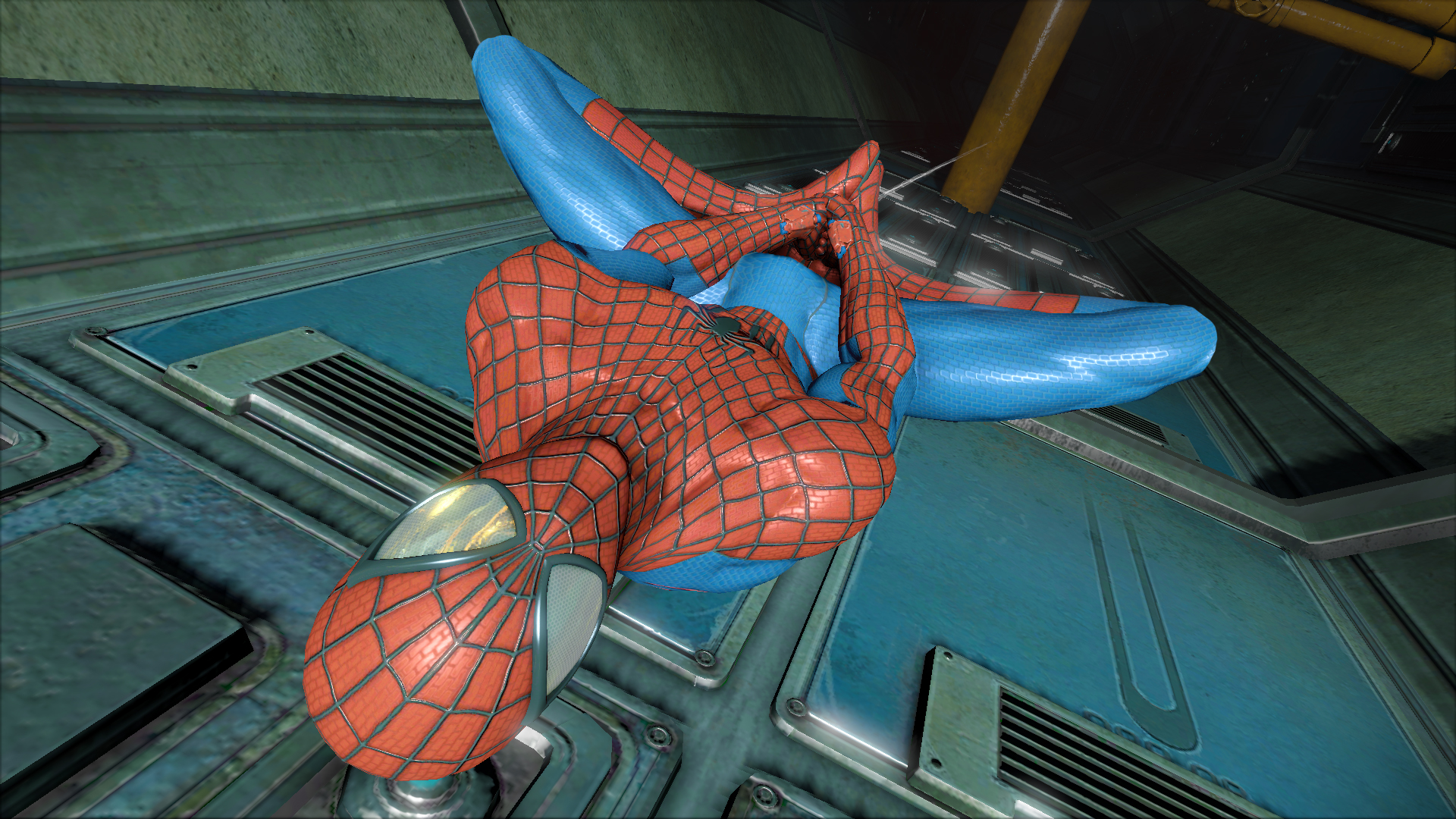
Great responsibility (to make a good movie)
Spider-Man is one of the most popular fictional characters of all time, even bigger than Sherlock Holmes, Garfield, or Theodore Roosevelt. After some hit or miss films, Peter Parker is gearing up for a whole new reboot in 2017, and with it coming hot off the heels of the lackluster Amazing reboot, the filmmakers really need to get it right. Good thing Spider-Man's many games contain the blueprints for movie success.
The best Spider-Man games get the wallcrawler as much as any other form of media. Its about time the filmmakers recognize that. Now, in an ideal situation, the movie producers would set aside the time to play every Spider-Man game ever made, but theyre probably busy. So, with any luck, theyll find this feature and use these in-game examples to lead them to movie magic.
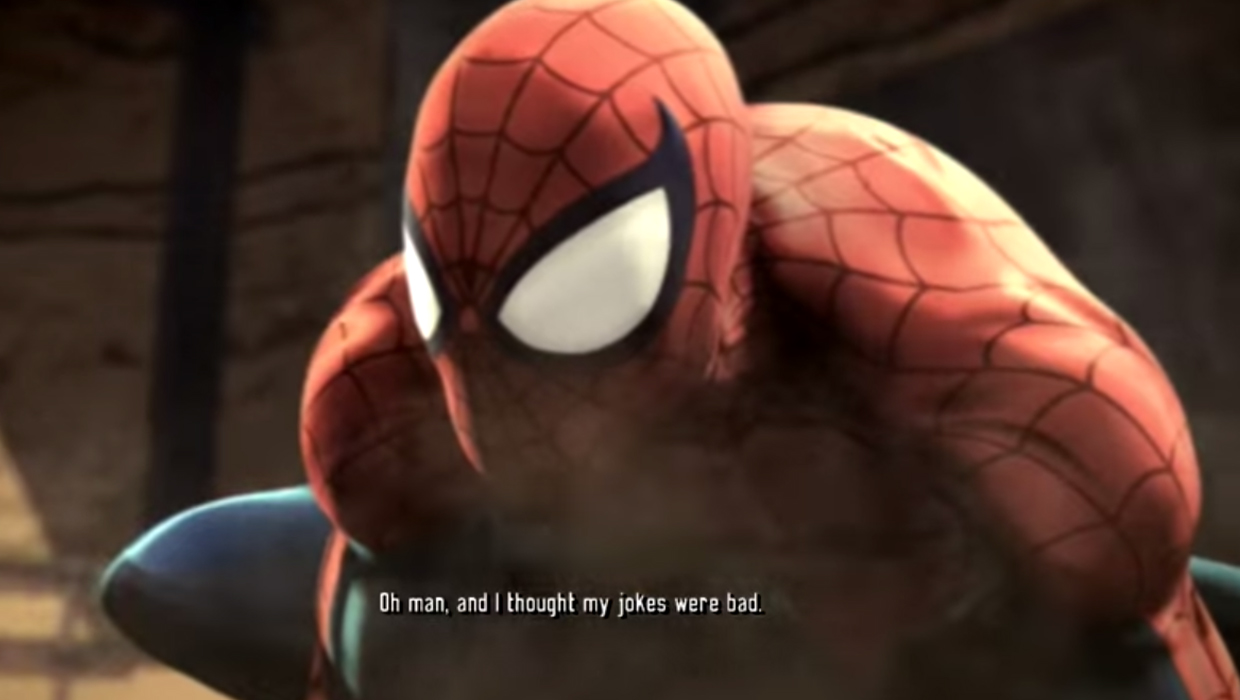
Remember that Spider-Man is funny
Despite how often Peter Parker mopes about his loved ones dying, he should be all smiles when he puts on the mask. Ideally, Spider-Man is constantly throwing out one liners, making comments about how goofy a villains costume looks, or making some meta comment about a bad guy's complicated plot. This happens occasionally in the movies, but just as often Peter is crying about Uncle Ben/Aunt May/Mary Jane, telling a villain to act rationally, or looking wistfully at someones grave. Movie Peter can be a real bummer.
Meanwhile, Spideys a regular comedian in his games. The PSone's CD tech allows for Spider-Man to be his talkative self for the first time in his self-titled release, and he hasn't shut up since. Even when a game isnt that great, Peter's constant quips help cover the action. Spider-Man: Shattered Dimensions goes so far as to cast four distinct Spider-Men, all with their own brand of humor, allowing even the weakest moments to flow. A steady stream of comedy can lighten the most boring 'flip three switches' puzzles or villainous exposition delivered by Alfred Molina.
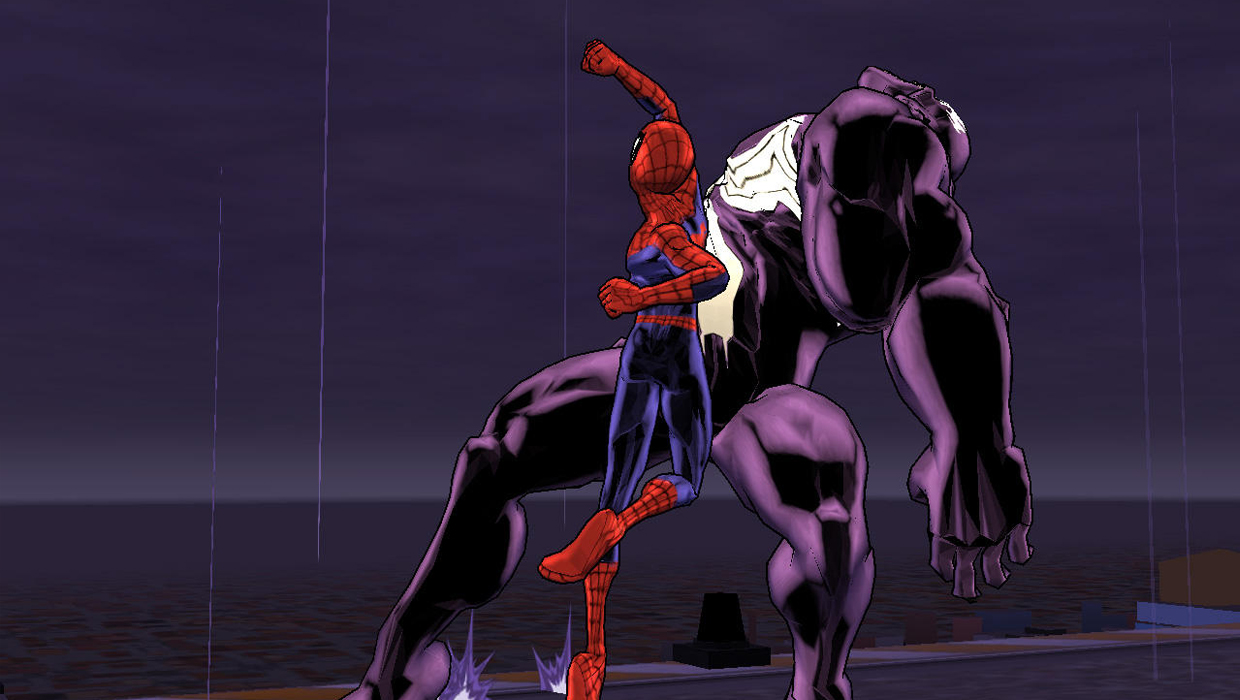
Cast Peter Parker as a high schooler
Parker is a 15-year-old high school student when he's bitten by a radioactive spider, and he hasn't aged all that much since. Unlike Batman or Iron Man, Spider-Man is a more relatable age to younger comic fans, and the producers smartly cast younger guys in the role. However, the films often rush through his teen years, getting him closer to adulthood than necessary. Tobey MaGuire's Peter is living in Manhattan halfway through his first movie, and by the trilogys end hes proposing to Mary Jane. Amazing handles his youth better, but is still quick to get him to graduation in the sequel.
Ultimate Spider-Man - based on the comic of the same name - introduces Peter as a teen and keeps him that way. Hes a stressed out kid trying to balance homework and foiling bank robberies. Hopefully the next movie will keep him just as young, but even an adult Parker can feel young. Just be sure to avoid the mistakes of Spidey's Sega CD game - he sounds like a dopey old uncle making bad jokes at Thanksgiving.
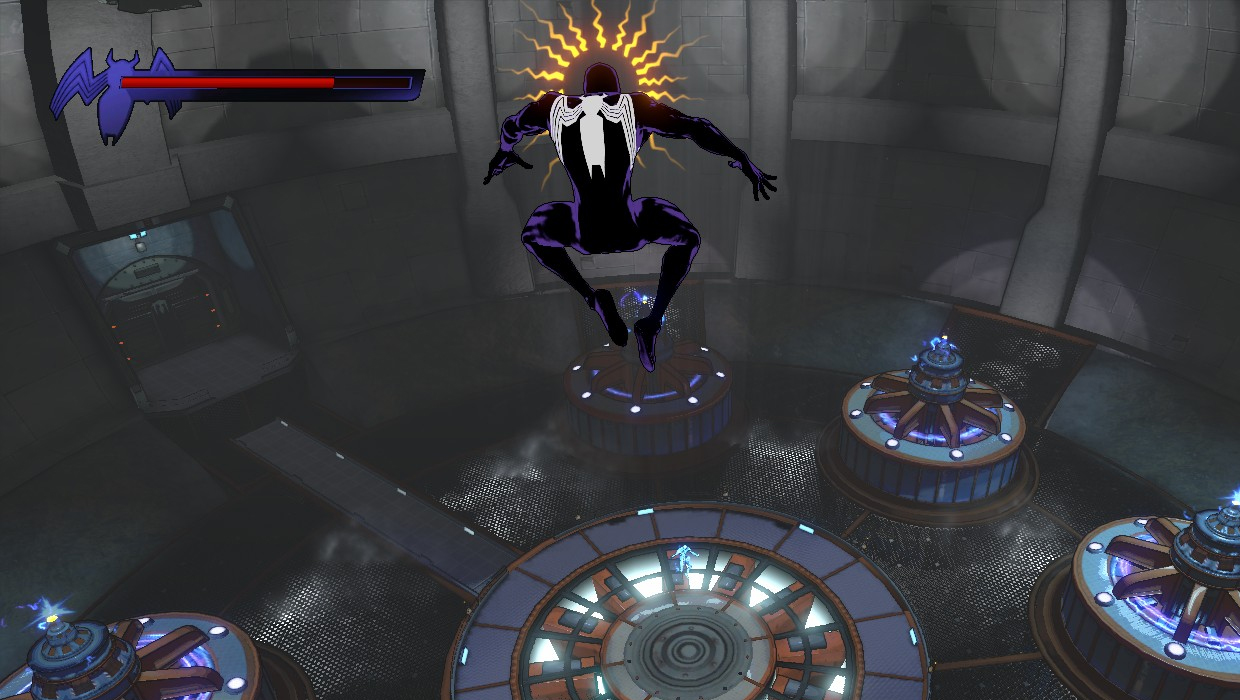
His Spider-Sense is always there
Most Spider-Man movies have a scene or two where Peter starts to understand his Spider-Sense, the psychic warning system that alerts him to danger. Unfortunately, he just as often forgets those warnings, sometimes getting shot in the leg by cops, or ambushed by The Lizard, or caught by surprise in one of Green Goblins traps. When his Spider-Sense is active, that should never happen. For the most part, the games do their best to keep that in mind.
Often Spidey games use Spider-Sense as the reason he can dodge attacks as well as Kratos or Bayonetta, making his dexterity much more believable than theirs. The Amazing Spider-Man film tie-ins take it a step farther, using Spider-Sense to replicate the kind of enhanced vision seen in Arkham Asylum or Assassin's Creed. The powers are just vague enough in the comics that the tingling sensation can be used in a variety of ways if you're creative enough.
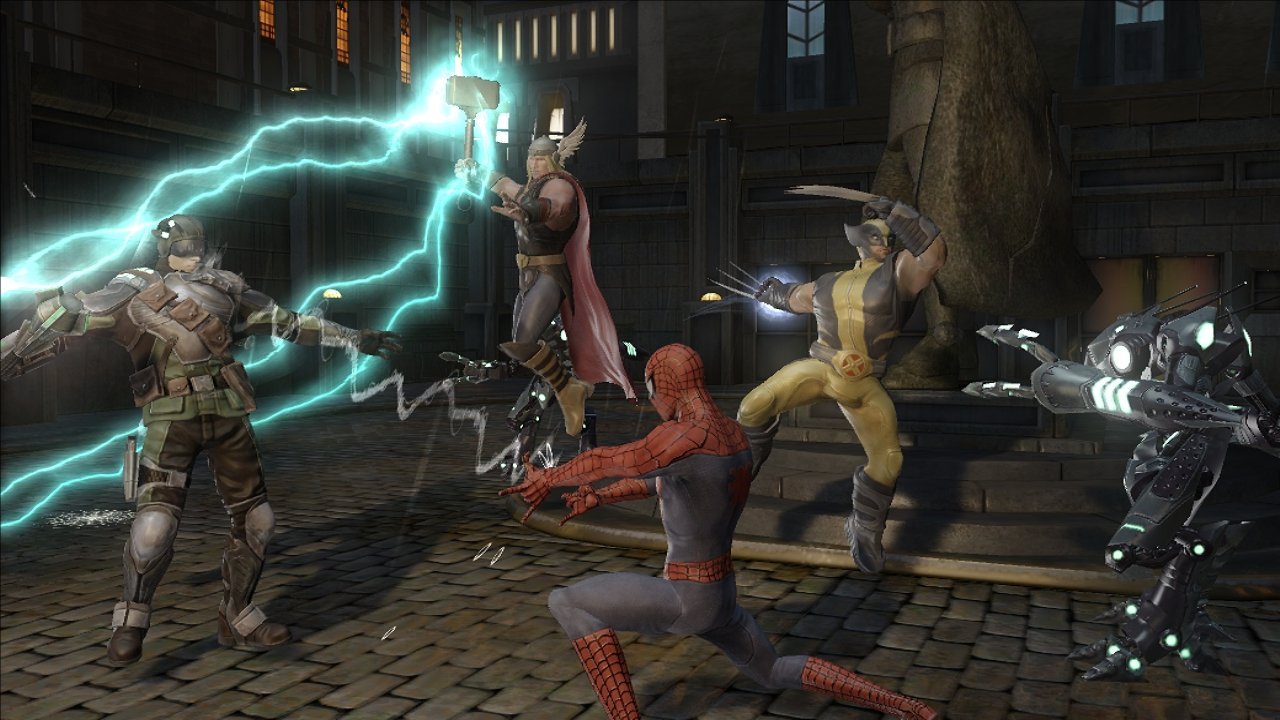
Have him hang out with other heroes
Up until recent negotiations between movie studios, Spider-Man films were treated like a remote island, kept far away from all the other Avengers. Now we know that Parker will get to meet the likes of Iron Man and Captain America, the real question is just how familiar will they get? Now that the film producers have this opportunity to play with those interpersonal dynamics in more than just a couple scenes. As the games show, Spider-Man is great at playing with others.
Having characters constantly run into one another is core to the Marvel Universe - why do you think they all live in New York? - and a number of Spidey games use that to their advantage. From the original arcade game to Marvel Heroes 2015, Spider-Man fits in with just about any team of Marvel heroes. Plus, Web of Shadows and Marvel: Ultimate Alliance's plots depend on Spidey's connections to guys like Wolverine and Human Torch. Soon Spidey will be just as chummy on film as he is in games, so we need all of Spider-Man and his amazing friends that we can get.
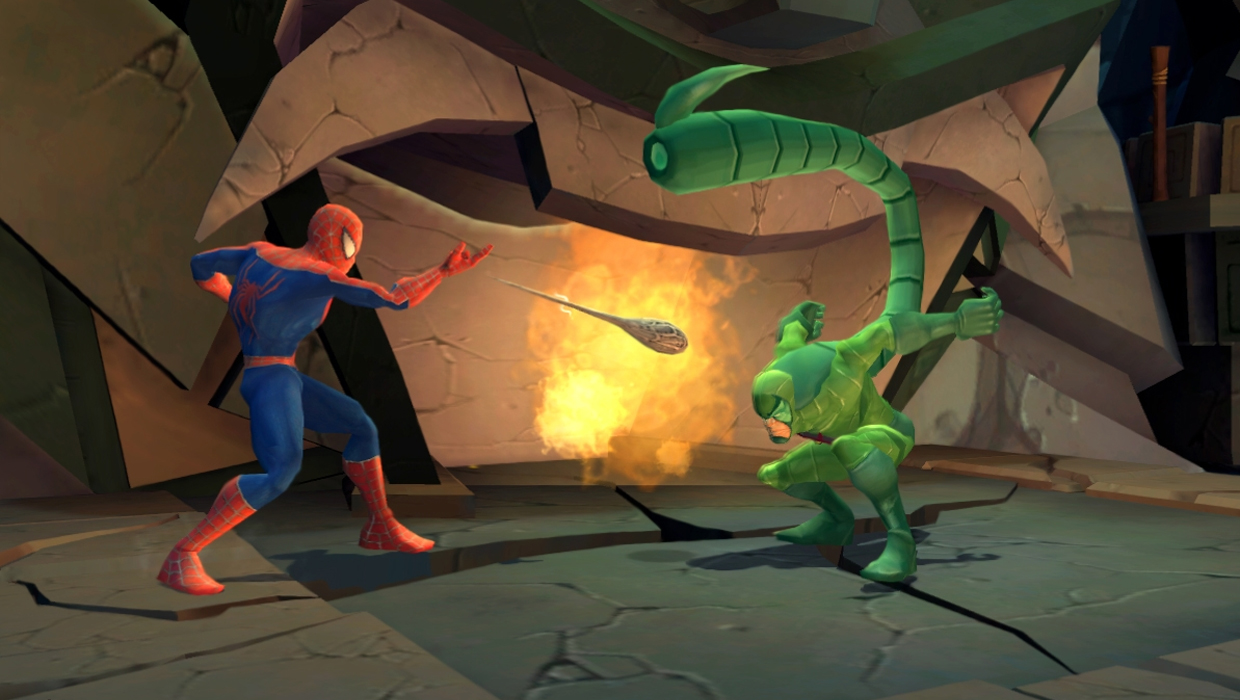
Some villains are only good in small doses
This problem goes beyond Spider-Man, because it's difficult to find any comic book villains that are a big enough threat for an entire film. After facing enemies on the level of Green Goblin or Doctor Octopus, a guy made out of sand just doesn't seem as threatening. Movies like Amazing Spider-Man 2 end up overpowering B-level guys like Elektro for variety's sake, and it just feels weak. However, that doesnt mean they dont have a role to fill. Some villains are only worth five minutes of screen time, instead of being excluded entirely.
Spideys games find time to explore his dense rogues gallery without overexposing the lesser ones. Each stage in Shattered Dimensions is a contained level that follows a single villain, such as Kraven, Sandman, and The Vulture. Every nemesis gets enough time to make an impact, but arent seen so long that you get sick of them. The Beetle, Ringer, Swarm, and similar goofs aren't worthy of a climactic battle, but they're good for a quick back and forth with Spidey before he leaves them webbed to lightpost.
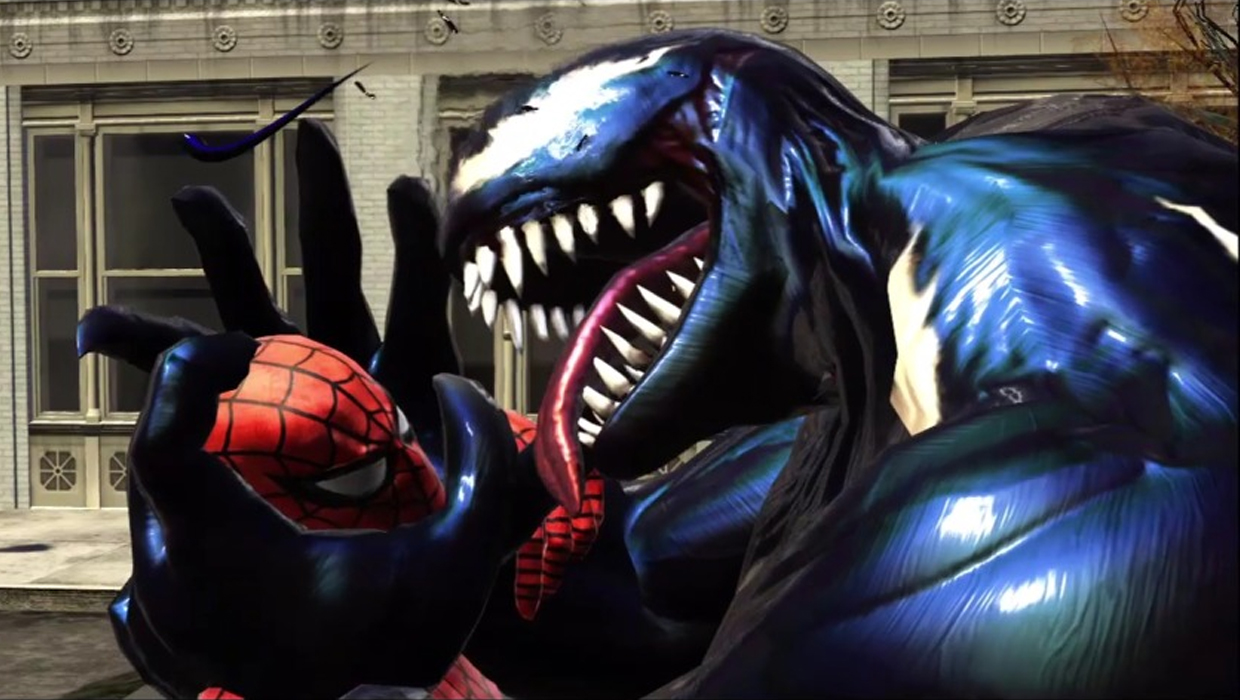
Venom is a monster, not a whiny dork
There's at least one Spider-bad guy that gets way less than he deserves on film. For readers in the '90s, Venom was a thing of nightmares. He's faster and stronger than Spider-Man, much more dangerous, and he's constantly threatening to eat people's brains. He isn't a bleach blonde twerp that tries to take Spider-Man's photo and is easily beaten by loud noises. Spider-Man 3 turns a beast into clown, and if Venom ever returns to the films, they need to make him half as menacing as he is in the games.
First seen in Spider-Man Arcade, Venom's vicious in just about every appearance, even when he's on your side in games like Maximum Carnage. His slimy green tongue is a highlight of the Marvel vs. Capcom games, and one of the first things Venom does in Ultimate Spider-Man is eat a child. This is a bad, bad man, and strong enough to fill a whole movie if you treat him right.
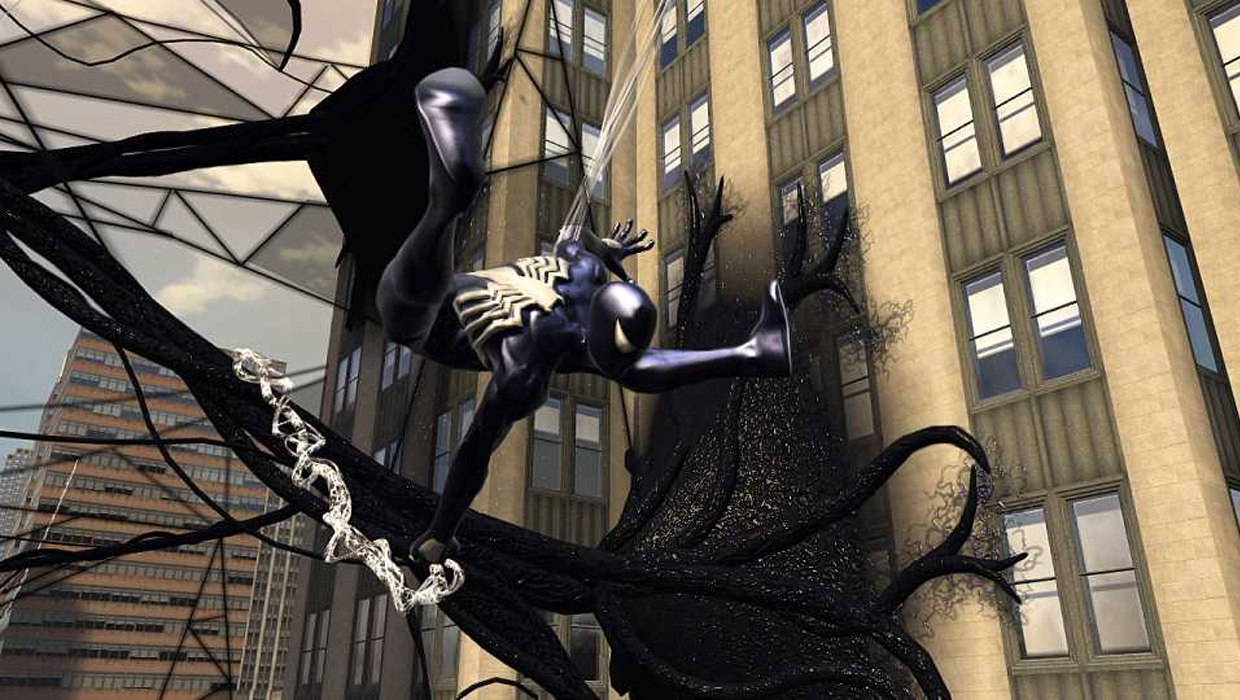
While you're at it, get the alien costume right
This whole article would be more concise with one slide saying 'don't do anything from Spider-Man 3,' but let's dig into this while on the subject of Venom. The black symbiote suit that spawns his arch nemesis is first worn by Spidey, and it changes him. Yes, it makes him more violent, but it also turns him into a bad boyfriend with an emo haircut and an interest in Bob Fosse. All this from a random rock that falls from outer space?
Spider-Man's second-most famous outfit handles much better in Web of Shadows. You can shift into the black costume at any moment, making Spidey's attacks fiercer and more devastating - like a Marvel version of Kratos. The suit's evil influence is also made more obvious in-game moral choices like choosing sides in a gang war or helping the Black Cat steal valuables from the mob. If Spidey's going bad, go all the way.
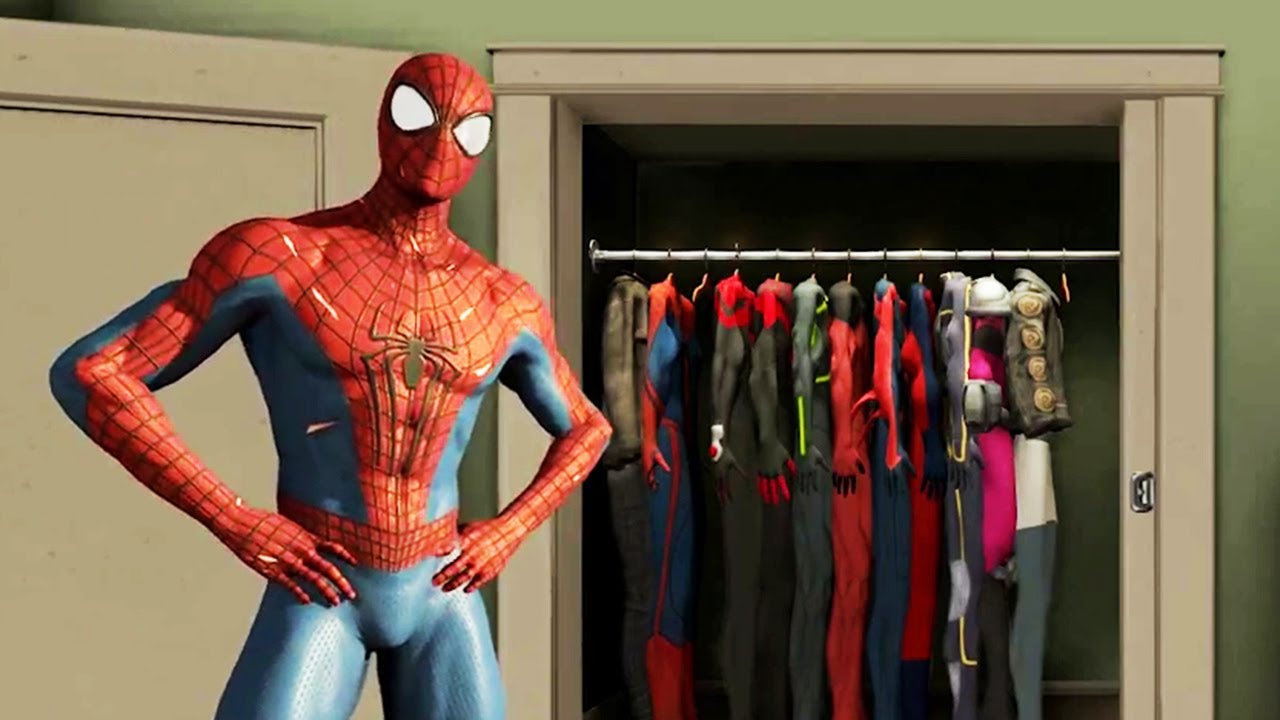
Secret identities are supposed to be secret
Spider-Man is a vigilante, one who'll be arrested should the cops ever find out who he is. Having a secret identity prevents that, and it also protects Peter's loved ones from being murdered by every one of his villains. So why in the hell does Spider-Man take his mask off so often in his movies? Whether stopping a speeding train speeding, helping a kid out of a burning car, or simply letting the cops remove it, he can't keep the damn thing on.
So, while you could knock the games for rarely exploring the life of Peter out of costume, he at least keeps his mask on at all times. Even the worst Spidey game - for the record, that's Web of Fire - keeps Peter's identity protected throughout, rarely even animating Parker's face. Sure, in the movies people want to see Spider-Man's handsome face, but save that for dates with Gwen Stacy or conversations in Aunt May's kitchen.
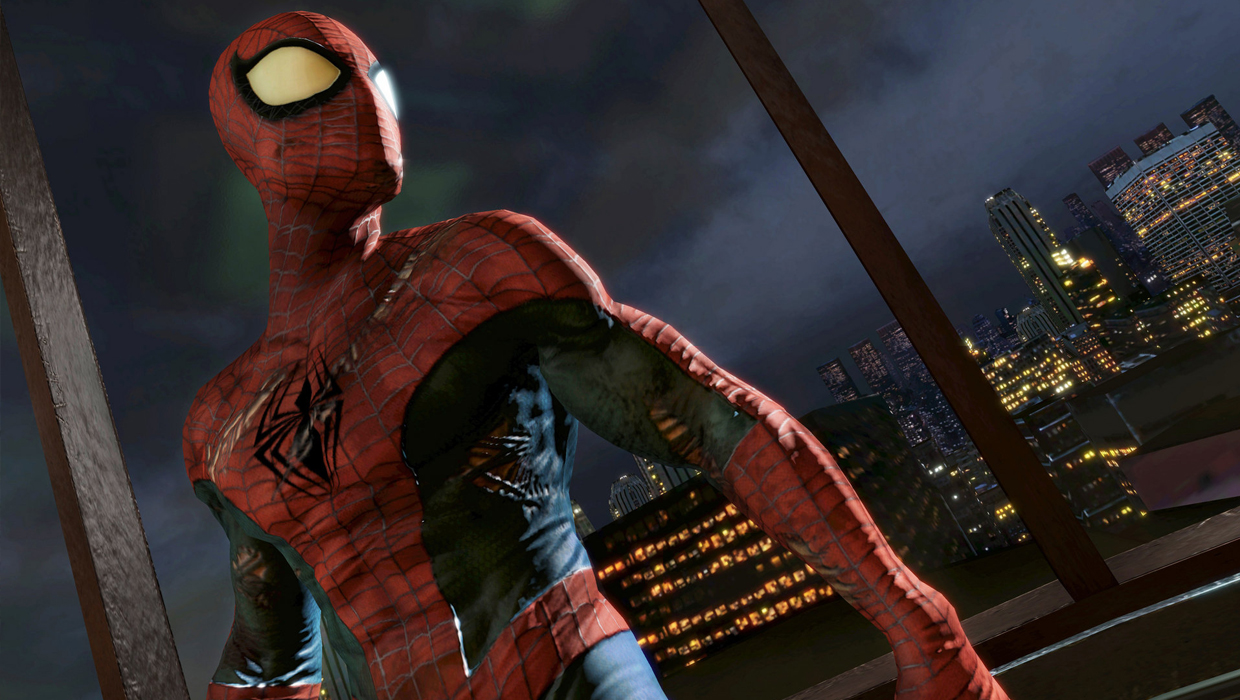
Don't plan too far ahead
The Amazing Spider-Man films were supposed to be more than just a trilogy of Andrew Garfield's costumed adventures. The original plan was to spin-off into a series of films, including The Sinister Six, and solo pictures starring Venom and Black Cat. The next reboot seems to wash that all away, making Amazing Spider-Man 2 stuffed full of scenes that set up a future that's never coming. Don't count your sequel money before it opens.
Perhaps you could chalk it up to the studio cycle Activision uses for the 15-plus years of Spider-Man games, but sequels are rarely planned for. More often the character bounds from one bang-up to the next, getting a fresh status quo each time. Ultimate Spider-Man, Web of Shadows, and Shattered Dimensions aren't trying to build to some universe-spanning battle that may happen in five years. That urgency means there's much more time for punching The Lizard in the face right now.
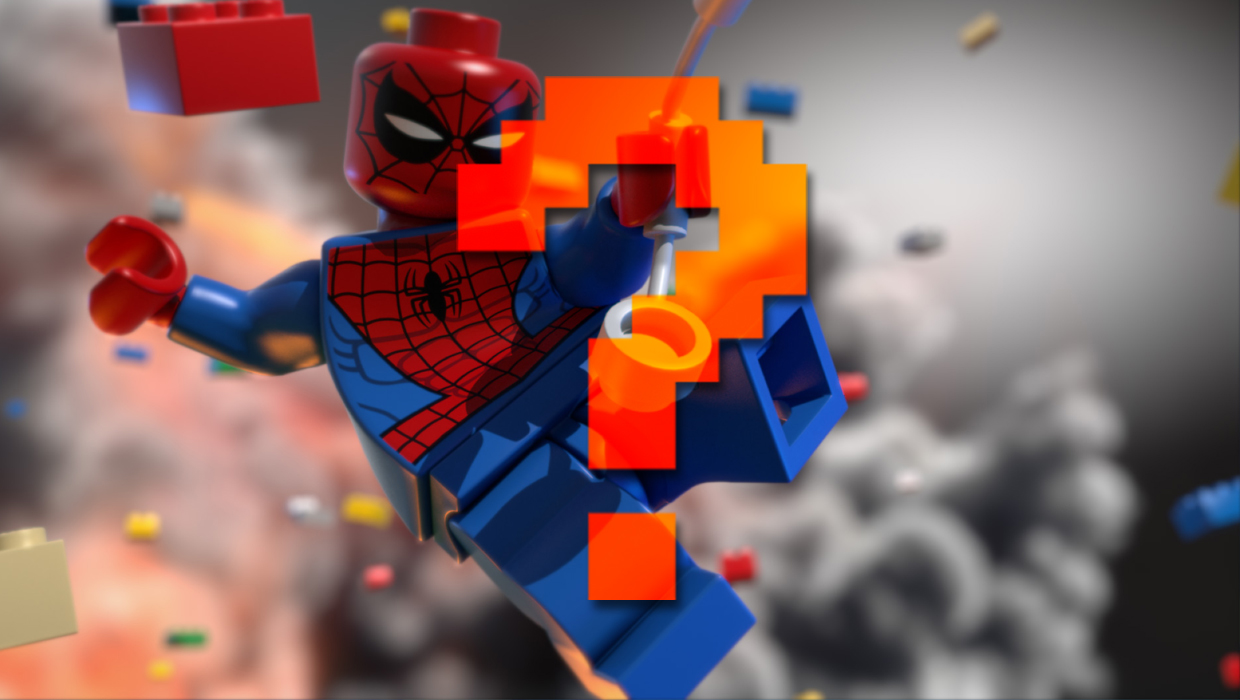
Whatever a spider can?
Cross your fingers that the next director of Spider-Man reads this, because the world deserves a Spidey film as good as his best games. If any other fans have tips from the games, share it all in the comments!
And if you're looking for more comic book fun, check out the best Spider-Man games and the 9 Spider-Man stories that'd make great games.

Henry Gilbert is a former GamesRadar+ Editor, having spent seven years at the site helping to navigate our readers through the PS3 and Xbox 360 generation. Henry is now following another passion of his besides video games, working as the producer and podcast cohost of the popular Talking Simpsons and What a Cartoon podcasts.


